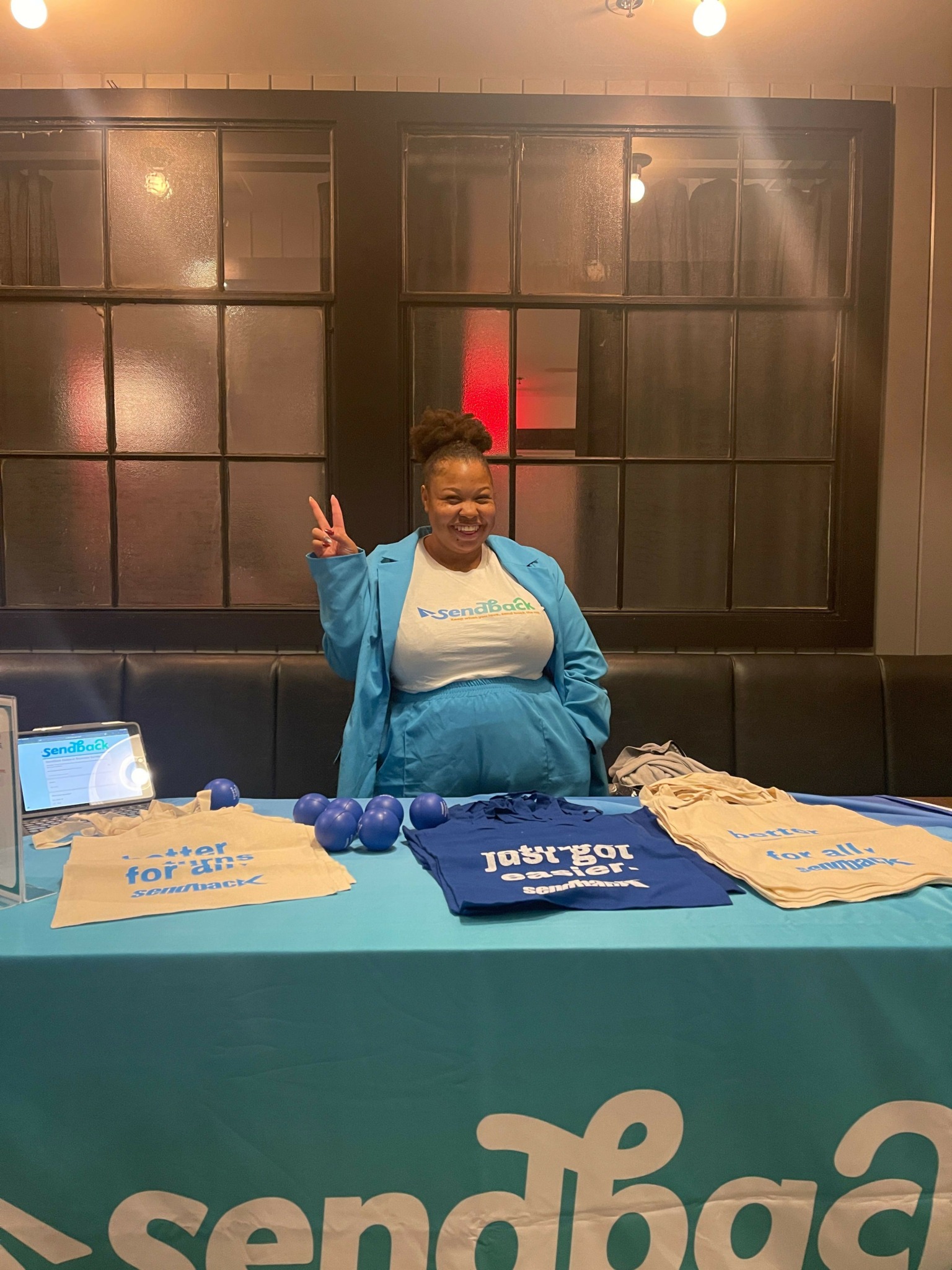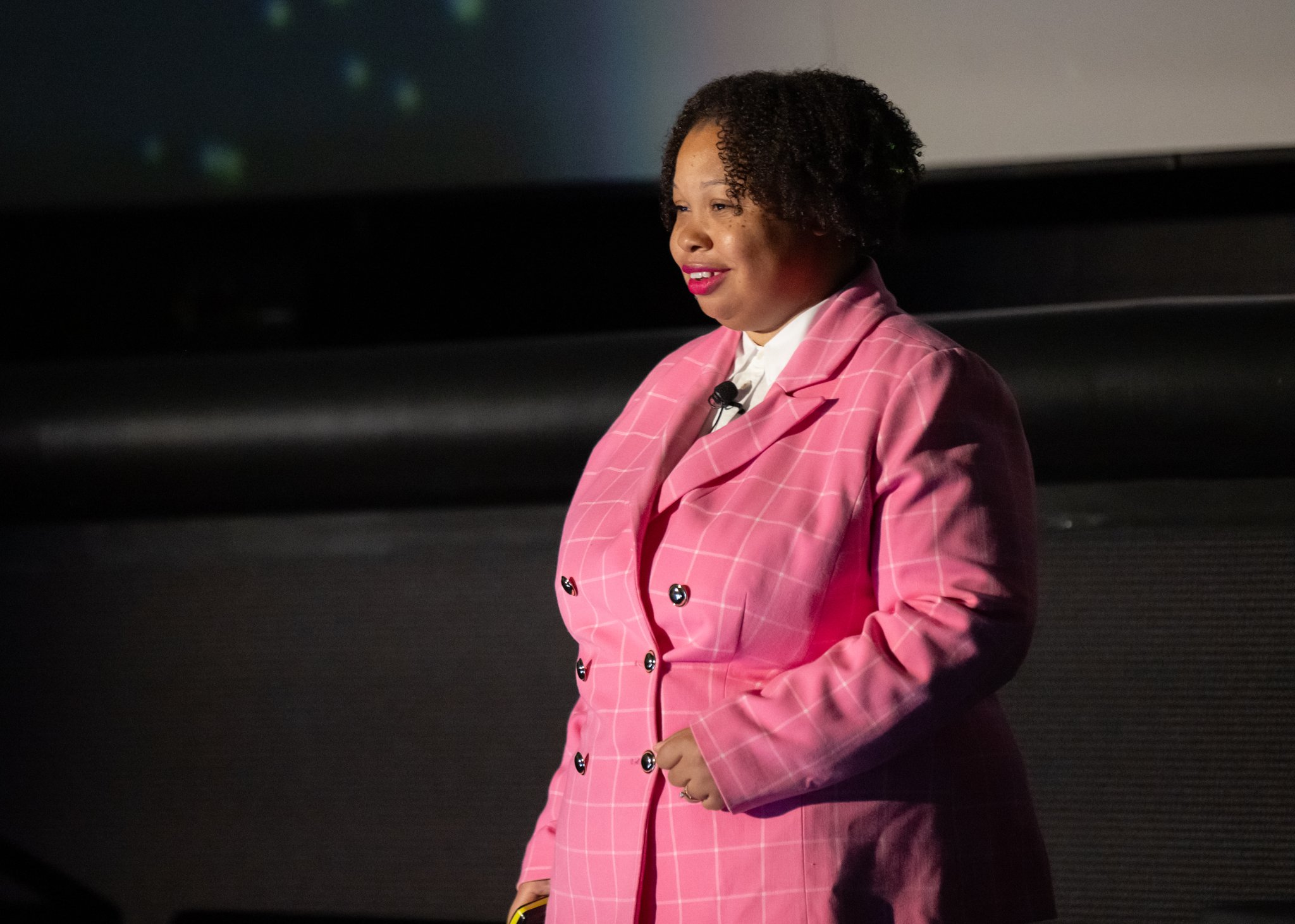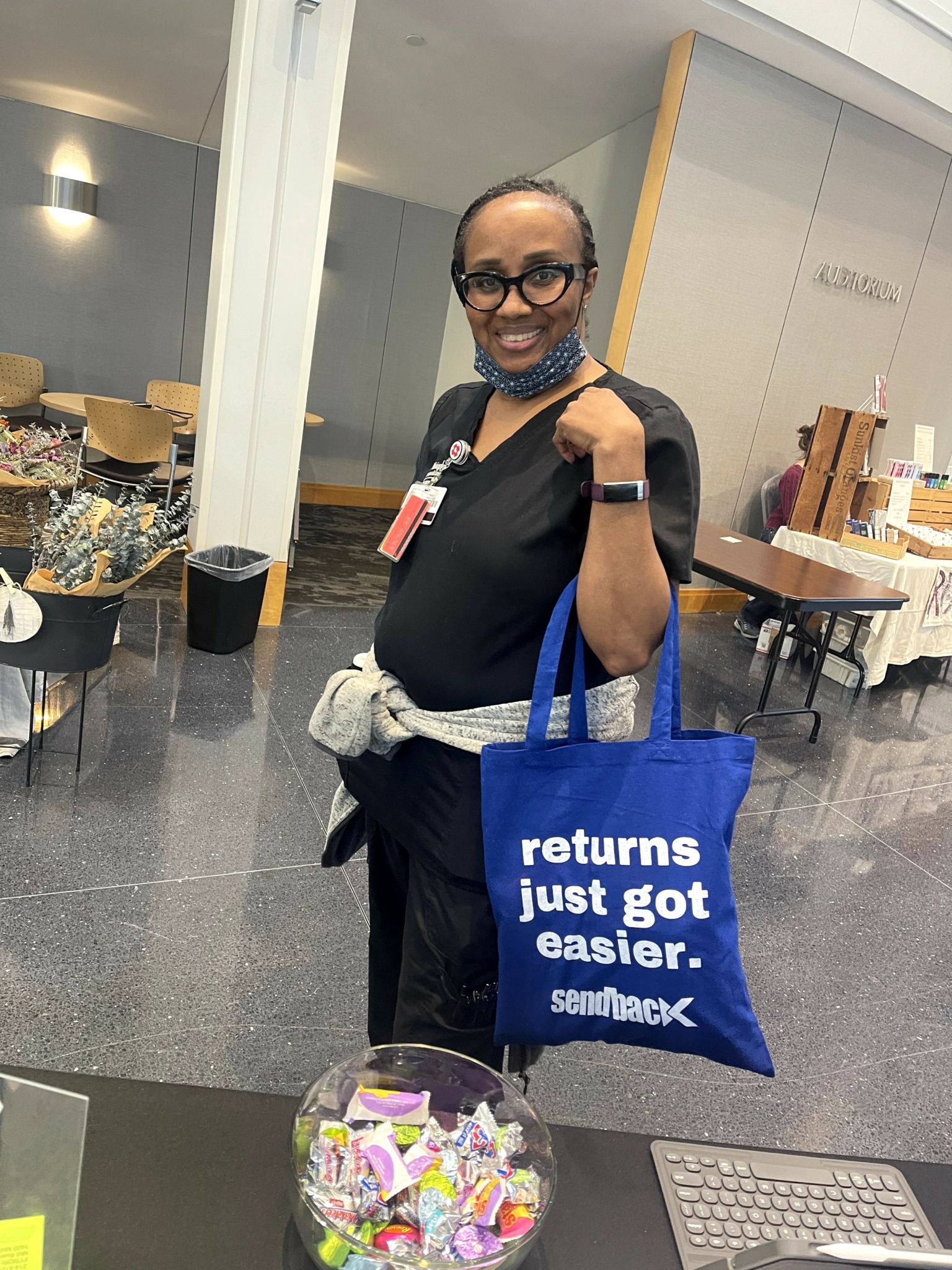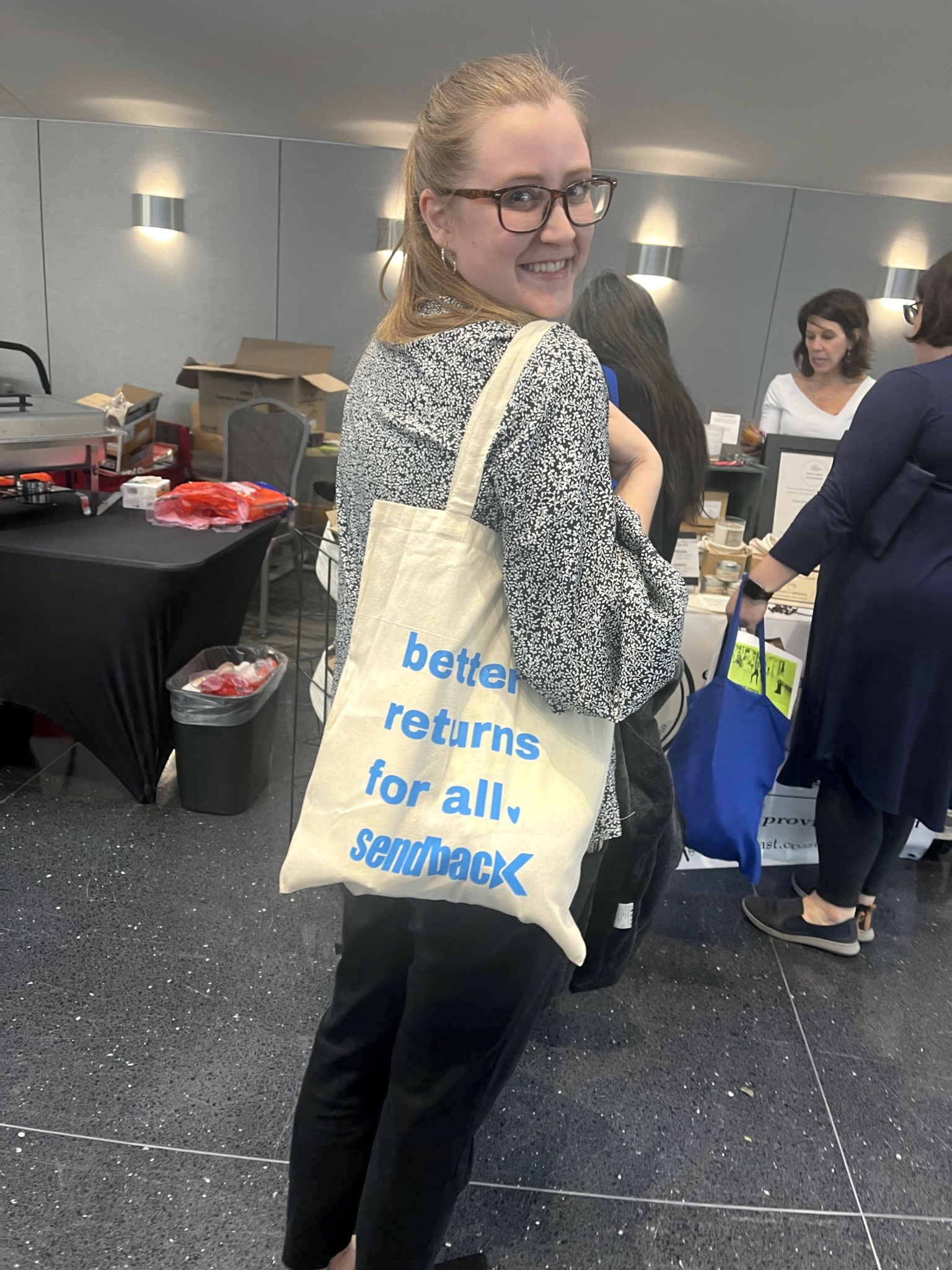We recently connected with Shaniqua Jones-Williams and have shared our conversation below.
Shaniqua, looking forward to hearing all of your stories today. Let’s start with the story of your mission. What should we know?
The mission behind SendBack is deeply personal and a reflection of my roots, my first spark of entrepreneurship, and the realization that what looks like a simple returns service is actually a powerful tool for impact — financially, environmentally, and socially.
I grew up in St. Louis, Missouri, and some of my favorite childhood memories are of creating with my grandfather. My very first entrepreneurial endeavor was making pencil holders out of toilet paper rolls. We’d collect them from neighbors, cover them in wrapping paper, and sell them as pencil holders. It was the true epitome of turning one man’s — or woman’s — trash into another’s treasure. I didn’t know it then, but that experience sparked a lifelong passion for finding creative ways to add value, reduce waste, and serve my community.
Fast forward to the early days of building SendBack, I was just trying to solve a problem I personally faced — I had a pile of items I needed to return after my wedding, and the process of repackaging, printing labels, and standing in line was time-consuming and frustrating. But as I began to dive deeper into the reverse logistics industry, I realized this wasn’t just about returns. Every unreturned item represents a financial decision — especially in today’s economy, where every dollar matters. People deserve the ability to invest their dollars where they matter most, and missed returns prevent that.
Returns affect all of us — our wallets, our time, and the planet. As I researched the industry, I also uncovered the rich but often overlooked legacy of Black logistics pioneers like Stage Coach Mary, Frederick McKinley Jones, Lewis Latimer, Granville T. Woods and many more. I hadn’t heard of their stories before SendBack, but learning about their innovations and resilience ignited something in me. I saw that I was standing on their shoulders, with an opportunity to build something not just useful, but transformative.
SendBack’s mission is to make returns effortless while championing sustainability and empowering communities — but for me, it’s also about reclaiming space in an industry where people like me have been historically underrepresented. It’s about making systems smarter, greener, and more equitable. That’s why this mission isn’t just meaningful — it’s part of my story, my family, and my purpose.

Awesome – so before we get into the rest of our questions, can you briefly introduce yourself to our readers.
Hi! I’m Shaniqua Jones-Williams, the CEO and Founder of SendBack, a reverse logistics technology company transforming the way people manage returns. I’m a proud St. Louis native, a Saint Louis University alum, and someone who has always believed in the power of creativity, resourcefulness, and community.
My entrepreneurial journey started early. When I was 10 years old, I made pencil holders out of toilet paper rolls with my grandfather — we’d collect them from around the neighborhood and decorate them with wrapping paper. That experience taught me that with a little ingenuity, you can turn something simple — even discarded — into something valuable. That spirit of resourcefulness has guided me ever since.
SendBack was born from a personal pain point. After my wedding, I had piles of packages I needed to return, but I didn’t know if they could still be returned, where to send them, or if the items needed to be repackaged and labeled. After months of frustration with a growing pile of unreturned items, my husband told me I needed a service that would just come pick them up and handle it for me. I thought his idea was genius — but I searched and found nothing like it existed. So, I decided to create it.
Today, SendBack is a returns management and donation pickup service — designed with community in mind. We serve multifamily communities, universities, senior living facilities, offering a seamless way for people to return items — without the hassle. Our app allows customers to schedule a pickup, sync purchases, and manage returns — no boxes, no labels, no stress. We also offer a GiveBack Bag program that lets customers donate unused items to local nonprofits, turning clutter into community impact.
The problem we solve is twofold:
1. The inconvenience and inefficiency of traditional returns.
2. The environmental and financial waste caused by missed returns.
In the U.S. alone, consumers lose an estimated $4.8 billion every year due to unreturned purchases, and returns contribute to 292.4 million tons of waste in landfills annually. We make returns effortless, helping people reclaim their dollars and reduce their environmental footprint.
What sets SendBack apart is our focus on convenience, community, and sustainability. We’re not just a shipping company — we’re redefining reverse logistics to serve people first. Our approach is personal and community-driven. We partner with organizations to provide our service as an amenity, making life easier for their residents or members while solving a real-world problem. Our GiveBack Bag program adds a unique layer of impact, and our long-term vision includes developing an end-to-end solution to help retailers and communities make smarter decisions about returns and reuse.
What I’m most proud of is building SendBack from a simple idea into a mission-driven company with real traction and real impact. We’ve secured partnerships, won pitch competitions, and received grant funding — but more importantly, we’ve created something people truly need. I’m also proud to be a Black woman in tech and logistics, pushing into a space where representation matters and innovation is overdue.
For potential clients, partners, or followers, I want you to know that SendBack is built with care, intention, and purpose. We’re here to make your life easier, to reduce waste, and to empower communities. Whether you’re a busy shopper with too many returns, a property manager looking to offer unique amenities, or a nonprofit seeking support — we’re here to serve and simplify.
This is just the beginning — and I’m so excited for what’s ahead.

Learning and unlearning are both critical parts of growth – can you share a story of a time when you had to unlearn a lesson?
One of the biggest lessons I had to unlearn is the belief that people who appear to be further along than you must know more than you do. Early on in my journey, I’d walk into rooms and assume that because someone had more funding, more press, or more connections, they had all the answers — and I didn’t. The truth is, they may not, and you may not be as far behind as you think. That was a huge mindset shift for me.
I had to stop measuring my worth or progress by someone else’s timeline or highlight reel. I realized that my ideas, my experiences, and my perspective are valid and valuable — whether I’m in a room full of seasoned executives or pitching SendBack for the first time. Confidence isn’t about having all the answers — it’s about trusting yourself and your vision.
Now, I walk into every room knowing I belong. I’m not waiting for a seat at someone else’s table — I’m building my own table and inviting others to pull up a chair. That’s the kind of leadership and energy I want to bring into every space I enter.

Can you talk to us about how you funded your business?
I’m a big believer in the power of accelerator programs — not just for the funding, but for the mentorship, community, and resources they provide. I registered SendBack in April 2023, and about eight months later, I received my first $20,000 grant through the Our Village United – Elevated Cities Cohort 2. That experience was a turning point. It showed me that there are ways to access capital without giving up equity, especially when you’re willing to invest the time and effort into pitching, refining your idea, and showing up fully.
To date, I’ve bootstrapped SendBack and secured $35,000 in non-dilutive grants through programs and pitch competitions. I’m really proud of that because it reflects my belief that entrepreneurs can get really far by being scrappy and strategic. Especially in tech, there’s this myth that you need a ton of money just to get started — but the truth is, many people spend too much, too early before even knowing if they have product-market fit.
Being scrappy forced me to slow down and really learn about building technology — to understand what I wanted, what I didn’t, and how to build something that aligned with my vision and values. It gave me the freedom to test, iterate, and find product-market fit on my own terms, without the pressure of spending investor dollars before the foundation was ready.
That journey taught me that capital is important — but clarity, resourcefulness, and grit are just as valuable in the early stages. Accelerator programs helped me access capital, but being scrappy helped me stretch it, learn, and build intentionally.
Contact Info:
- Website: https://sendbackreturns.com
- Instagram: https://www.instagram.com/sendbackreturns/



Image Credits
1. Cover Photo: (Shaniqua sitting down) Mena Darre Photography
2. Photo 2&3: Nicole Bissey Photography (Pipeline Pitch Showcase & Gala 2025)


